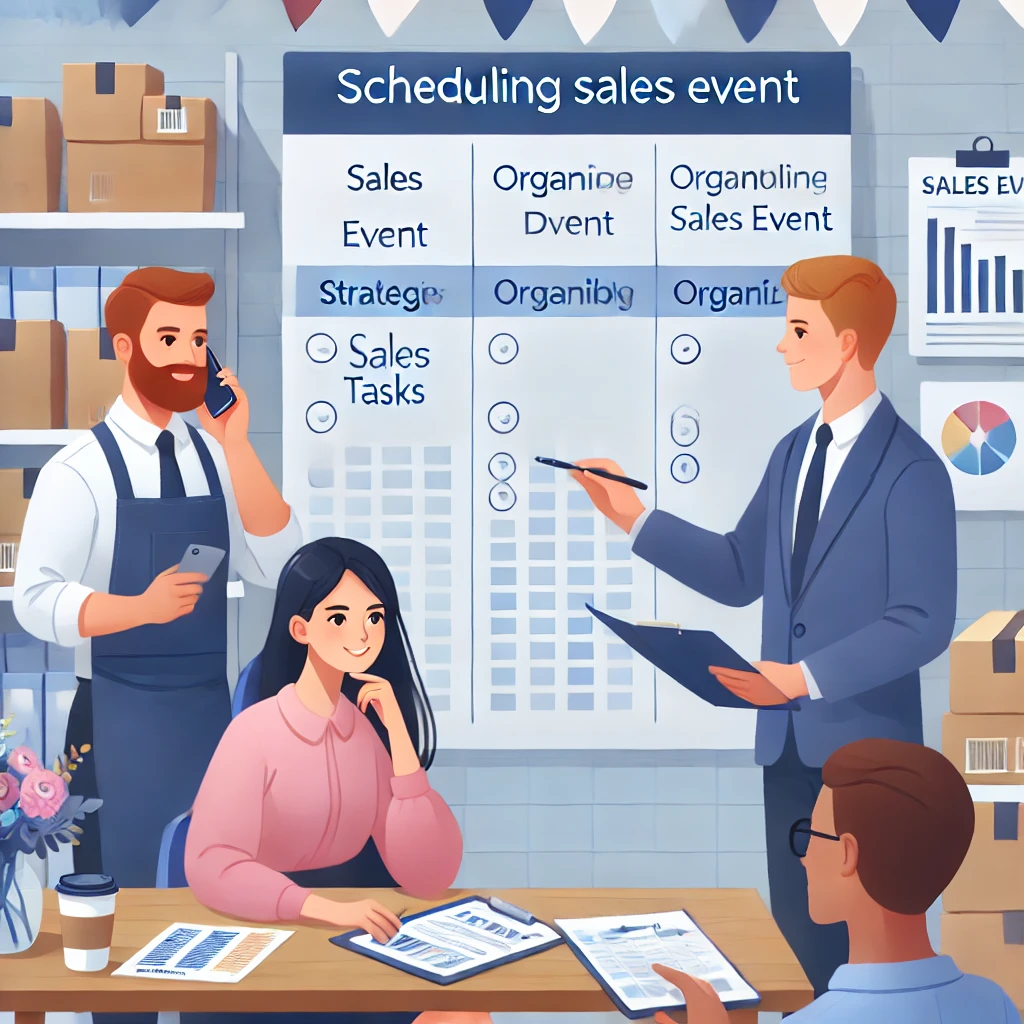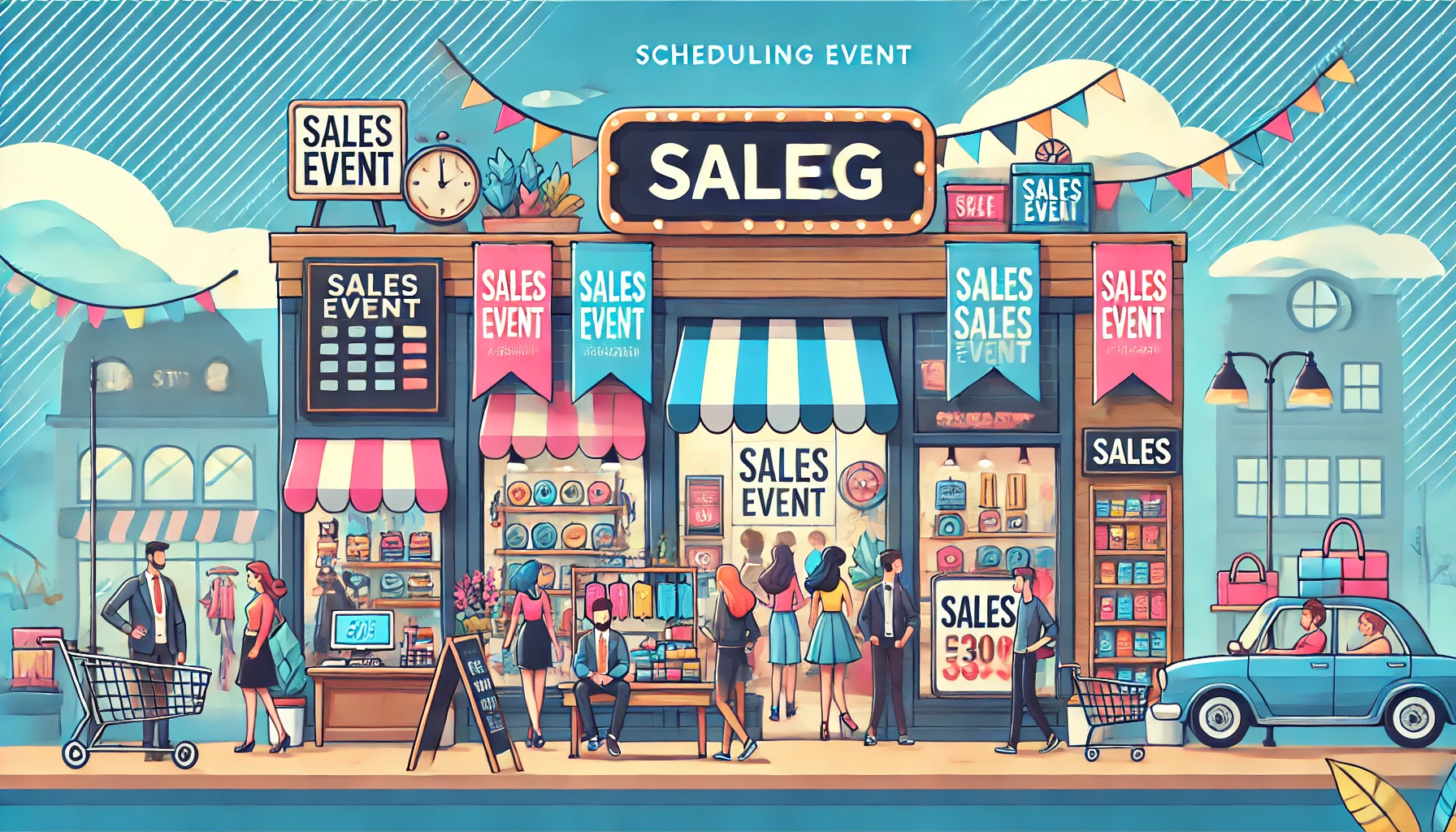Sales events are a powerful tool for driving customer traffic, boosting sales, and creating excitement around your retail business. Whether you’re planning a seasonal sale, a flash sale, or a store anniversary event, careful planning and execution are essential for success. Here are some tips to help you schedule and plan effective sales events:
1. Set Clear Goals and Objectives
Before planning any sales event, it’s important to set clear goals and objectives. Determine what you want to achieve with the event, such as increasing sales, attracting new customers, clearing out old inventory, or promoting a new product line. Having specific goals in mind will help you tailor your planning and measure the event’s success.
Establish key performance indicators (KPIs) to track the success of your event. These can include metrics such as total sales, customer footfall, average transaction value, and social media engagement. Setting clear goals and KPIs provides a benchmark for evaluating the effectiveness of your event.
2. Choose the Right Timing
Timing is crucial when planning a sales event. Consider factors such as seasonality, market trends, and customer shopping behaviors. Schedule your event during a period when customers are most likely to be receptive to promotions, such as during the holiday season, back-to-school period, or after payday.
Avoid scheduling your event during times of high competition or when major events might distract your target audience. For example, planning a sales event during a major sports event or a national holiday might not yield the best results. Instead, choose dates that align with your customers’ shopping patterns and preferences.
3. Create a Compelling Offer
A successful sales event requires a compelling offer that entices customers to make a purchase. Consider offering significant discounts, bundle deals, buy-one-get-one-free promotions, or exclusive limited-time products. The more attractive the offer, the more likely customers will be to participate in the event.
Ensure that your offer is clear and easy to understand. Confusing terms or complicated conditions can deter customers from taking advantage of the promotion. Clearly communicate the details of the offer, including the discount amount, eligible products, and any restrictions.

4. Plan and Coordinate Marketing Efforts
Effective marketing is key to driving awareness and participation in your sales event. Develop a comprehensive marketing plan that includes multiple channels, such as email marketing, social media, in-store signage, and online advertising. Start promoting the event well in advance to build anticipation and excitement.
Create a consistent message across all marketing channels to ensure that customers understand the event details and benefits. Use eye-catching visuals, compelling copy, and strong calls-to-action to encourage customers to attend the event. Consider partnering with influencers or running social media contests to amplify your reach.
5. Prepare Your Store and Staff
Ensure that your store is well-prepared for the sales event. This includes organizing and stocking merchandise, creating attractive displays, and setting up any necessary equipment or signage. A well-organized and visually appealing store can enhance the shopping experience and encourage customers to make purchases.
Train your staff to handle the increased customer traffic and provide excellent customer service. Ensure that they are familiar with the event details, offers, and any special procedures. Having knowledgeable and friendly staff on hand can significantly improve the customer experience and increase sales.
6. Monitor Inventory Levels
Managing inventory levels is crucial for a successful sales event. Ensure that you have sufficient stock of the promoted items to meet customer demand. Use inventory management tools to track sales and adjust stock levels as needed. Avoid overstocking or understocking, as both can negatively impact the event’s success.
Consider implementing a real-time inventory tracking system to monitor sales and inventory levels during the event. This allows you to make quick decisions, such as restocking popular items or adjusting promotions based on sales performance.
7. Provide Excellent Customer Service
Customer service plays a vital role in the success of a sales event. Ensure that your staff is trained to handle customer inquiries, resolve issues quickly, and provide a positive shopping experience. Encourage staff to engage with customers, offer assistance, and make product recommendations.
Consider providing additional services, such as gift wrapping, free samples, or refreshments, to enhance the customer experience. Small gestures can leave a lasting impression and encourage customers to return for future events.
8. Evaluate and Analyze Event Performance
After the sales event, it’s important to evaluate and analyze its performance. Review your KPIs and compare them to your goals and objectives. Gather feedback from customers and staff to identify areas for improvement. Analyzing the event’s success and challenges will help you refine your strategies for future events.
Consider conducting a post-event survey to gather insights from customers. Ask about their experience, what they liked, and what could be improved. Use this feedback to make data-driven decisions and enhance the effectiveness of your future sales events.

Conclusion
Scheduling and planning successful sales events require careful preparation, clear goals, and effective marketing. By setting clear objectives, choosing the right timing, creating compelling offers, coordinating marketing efforts, preparing your store and staff, monitoring inventory levels, providing excellent customer service, and evaluating event performance, you can create sales events that drive traffic, boost sales, and enhance the customer experience. Invest in these strategies to ensure the success of your next sales event and build lasting customer relationships.


